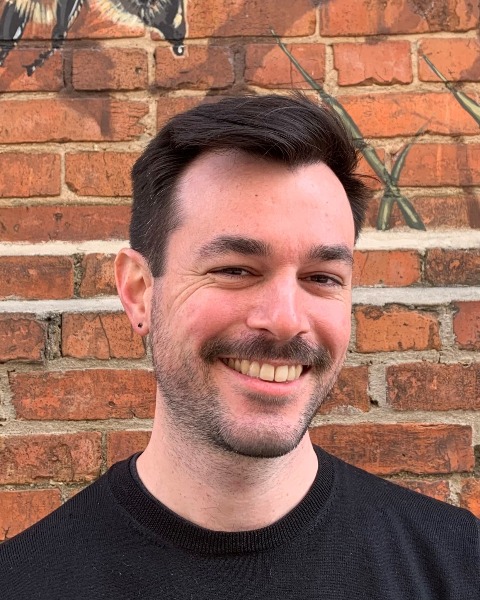Health Evaluation
Translating patients' lived experiences into programmatic actions to improve cancer early detection
-

Patrick Edwards, MSc
Director, Patient Support Evaluation
American Cancer Society, United States -
TM
Teri Malo, PhD, MPH
Director, Data and Evaluation - Screening
American Cancer Society, United States -
KW
Kristen Wehling, MPH
Director, Interventions & Special Projects
American Cancer Society, United States -
MB
Michelle Burcin, PhD, MPH
Senior Director, Data and Evaluation
American Cancer Society, United States -
MF
Marcie Fisher-Borne, PhD, MSW, MPH
Managing Director, Interventions & Implementation
American Cancer Society, United States
Presenter(s)
Author(s)
Location: White River Ballroom B
Abstract Information: Like many women, Ana waited a long time to complete the colonoscopy recommended by her doctor. Living alone, she did not have a means to get to her appointments, and being uninsured as well as solely speaking Spanish only heightened her hesitancy. Ana’s journey to getting screened took time, and while her story offers a distinctive lens in overcoming emotional, financial, and physical barriers to ultimately get screened, the story of waiting is not unique. This skill-building workshop offers the opportunity to examine the role of powerful storytelling in programmatic evaluation, and provides participants with hands-on insight into the collection, analysis, and dissemination of patients’ stories. This storytelling workshop, facilitated by evaluators from the American Cancer Society, will showcase real stories from safety-net health clinics with which we have partnered to improve supports for patients with limited resources. We will review targeted questions that were incorporated into our data collection tools to gather high-quality impact stories from the patient and health system perspectives and will discuss ethical considerations for collecting patient stories. Using examples from anonymous patients, we will break into teams to discuss, map, and present the story from different points of interest, including health system, program leadership, and funder. We will discuss processes that the American Cancer Society has used to synthesize stories by key themes, such as access, navigation, and equity, and will share methods used to organize story data in a way that is meaningful and actionable for various internal and external audiences. Lastly, we will practice these skills during a few exercises in developing a storyboard to map the patient journey and how this process can be used to inform programmatic improvements in cancer screening projects and in demonstrating project impacts. Stories, such as Ana’s, can supplement quantitative and qualitative data to add a person-centered perspective to programmatic evaluation. Ana’s lived experience provides our evaluation a more vivid illustration of what a patient impacted by multiple barriers navigates through to get screened. Overall, this workshop will show how an emotional spark through storytelling can fuel solutions to finding cancer early when it is easier to treat. Skills learned during this workshop can be used across a variety of evaluation settings interested in improving equity and in using stories to drive actionable insights.
Relevance Statement: The use of patient impact stories in programmatic evaluation provides evaluators, program leaders, and other end-users with firsthand accounts on how programs and interventions shape the lived experiences of patients. This person-centered approach to evaluation is critical in non-profit organizations focused on equity, such as the American Cancer Society, whose mission is to end cancer as we know it, for everyone. This workshop aligns with the AEA’s conference theme of storytelling and is designed for evaluators and researchers who want to learn and practice approaches for collecting, organizing, and packaging impact stories as a part of programmatic evaluation. The content area, early detection through cancer screening, provides a distinctive yet vital subject to explore how data can be painted to life through powerful stories and the representation of raw emotion and human experience. While complex quantitative findings and evaluation results can sometimes get lost in translation to the end-user, a difficulty faced by many evaluators, personal stories add value to the evaluation field in that they can be understood and related to by all audiences. During the workshop, we will present methodology around designing and implementing a storytelling process as part of American Cancer Society’s patient support program evaluation and will share examples of how impact stories we collect have supplemented our quantitative and qualitative data to build a comprehensive project story. Through hands-on exercises, workshop attendees of all experience levels will work in teams to map a patient journey from the initial outreach conducted by the health system staff to the barriers and processes navigated by the patient to get to the appointment, through the ultimate screening and follow-up care. We will practice approaches for packaging stories for various audiences, including health system, program leaders, and funders. All patient stories used are anonymized and we will discuss ethical considerations for collecting program impact stories. Additionally, the workshop will be presented by evaluators from the American Cancer Society with expertise in conducting evaluation of cancer programs, providing a valuable and unique learning experience for other evaluators in a human welfare subject matter.
